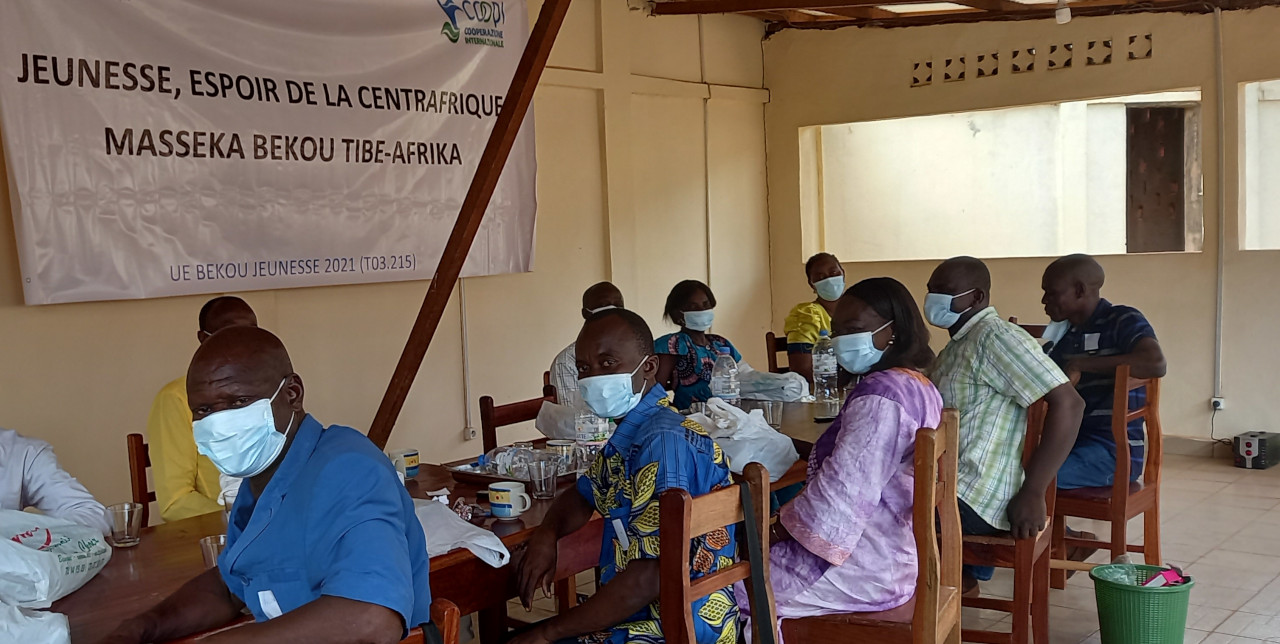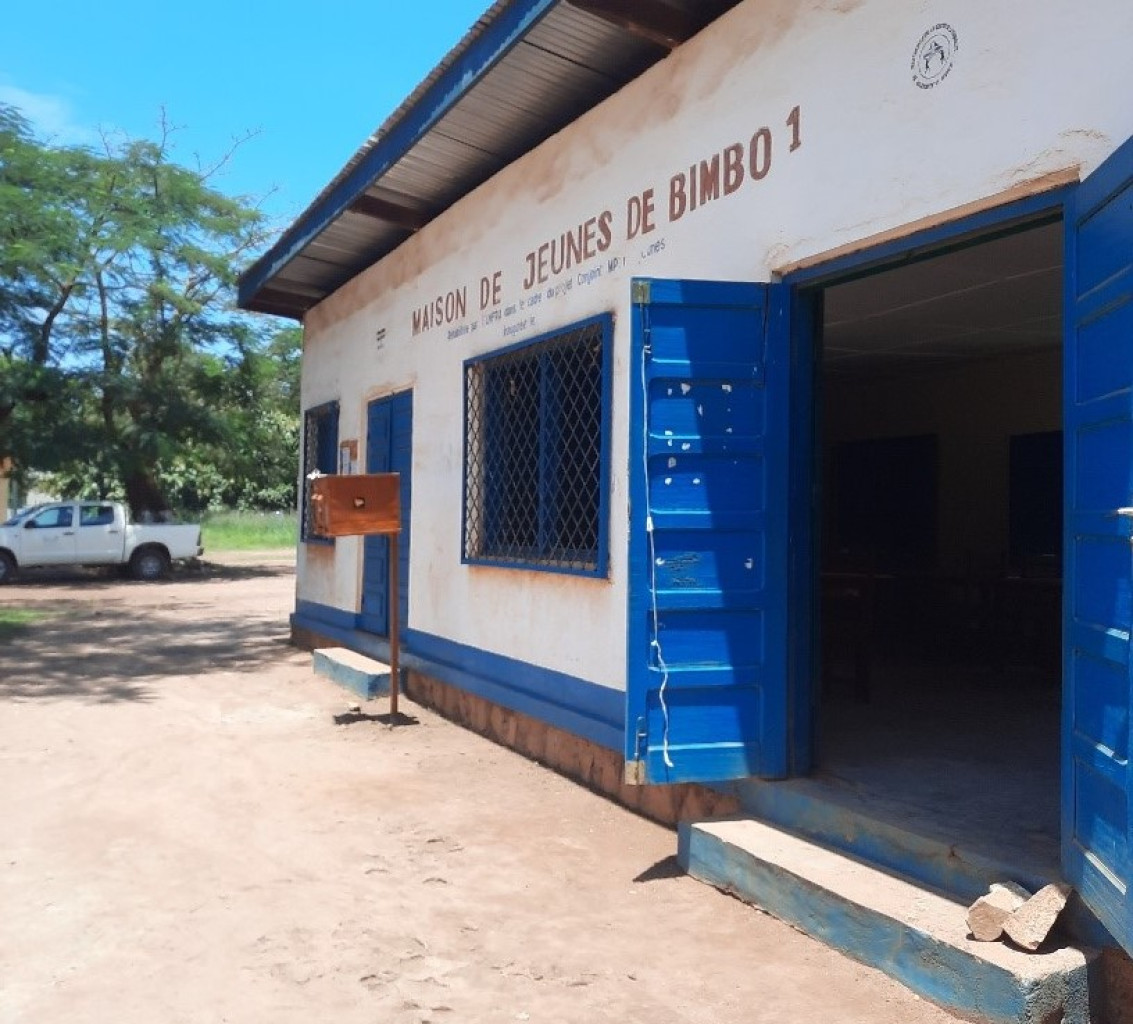04-01-2023 | di COOPI
RCA. Bangui Youth House is relaunched
In the Central African Republic, around Bangui, there are not many houses or spaces dedicated to young people and activities have always been difficult to implement. Until 2021, the Youth House in the Bimbo neighbourhood of Bangui did not receive any material or financial support to implement them. The situation radically improved two years ago: the youth centre started to receive adequate support.
The new director, Véronique Mbesse-Dmjeby, with years of experience in various youth centres in the area, says:
The situation is not easy. There is a big security gap in the neighbourhood, robberies and violence are quite frequent. I believe that we have to intervene at the level of the young people to try to improve the condition of things. We are here to support the young people in our neighbourhoods and villages. We have to work with them to make their future better.
Veronique explains that after the start of the project "Youth, Hope of the Central African Republic: Masséka békou ti Bé-Afrika", implemented by COOPI - Cooperazione Internazionale and financed by the 'Békou' European Trust Fund, her work became easier to manage:
Before the project started, the only opportunities offered by the Youth Centre were educational talks and the library. Now I can organise many more activities in the House, and more and more young people are starting to participate and take an interest in the activities offered. We have been able to proceed with the adoption of an action plan for next year's activities and also ensure a close follow-up with the boys. Also thanks to the support of the management committee, which was created when the project started, I am able to organise awareness-raising sessions on civic sense and citizenship to involve young people on the issue of safety in the neighbourhood.
Véronique also had the opportunity to participate in a capacity building workshop for youth centre directors organised by the project, thanks to which she acquired new skills and improved existing ones:
The work is now more manageable, I feel more confident and I know I have the skills to understand the needs of our youth community and organise more specific activities for them.
The director also emphasised the fact that not many girls participate in the activities. The main reason, according to her, is a language barrier:
They think that only French is spoken in the Youth House and are ashamed to participate for fear of not understanding. My goal is to integrate more girls, organise activities and involve them so that they feel comfortable. We will start with literacy classes. Later, we would also like to organise activities for the teenage mothers, who are quite numerous in the area.
This youth support programme aims to strengthen young people's proactive awareness and participation so that they can be key players in the dialogue and social cohesion of the community, to accompany the peace and reconciliation process in the country. Firstly, it will aim to rehabilitate and equip youth houses in the areas concerned, making them autonomous, operational and functional. Then, in collaboration with the institutions that most represent young people, such as the National Youth Council (CNJ) and the National Institute of Youth and Sports (INJS), joint planning and coordination of actions to support young people will be undertaken.
In conclusion, the director states:
I see that the situation is already starting to improve. I am optimistic that, as the activities continue, young people will benefit more and more and, thanks to them, we will be able to bring visible improvements to our community.




 Central African Republic
Central African Republic
